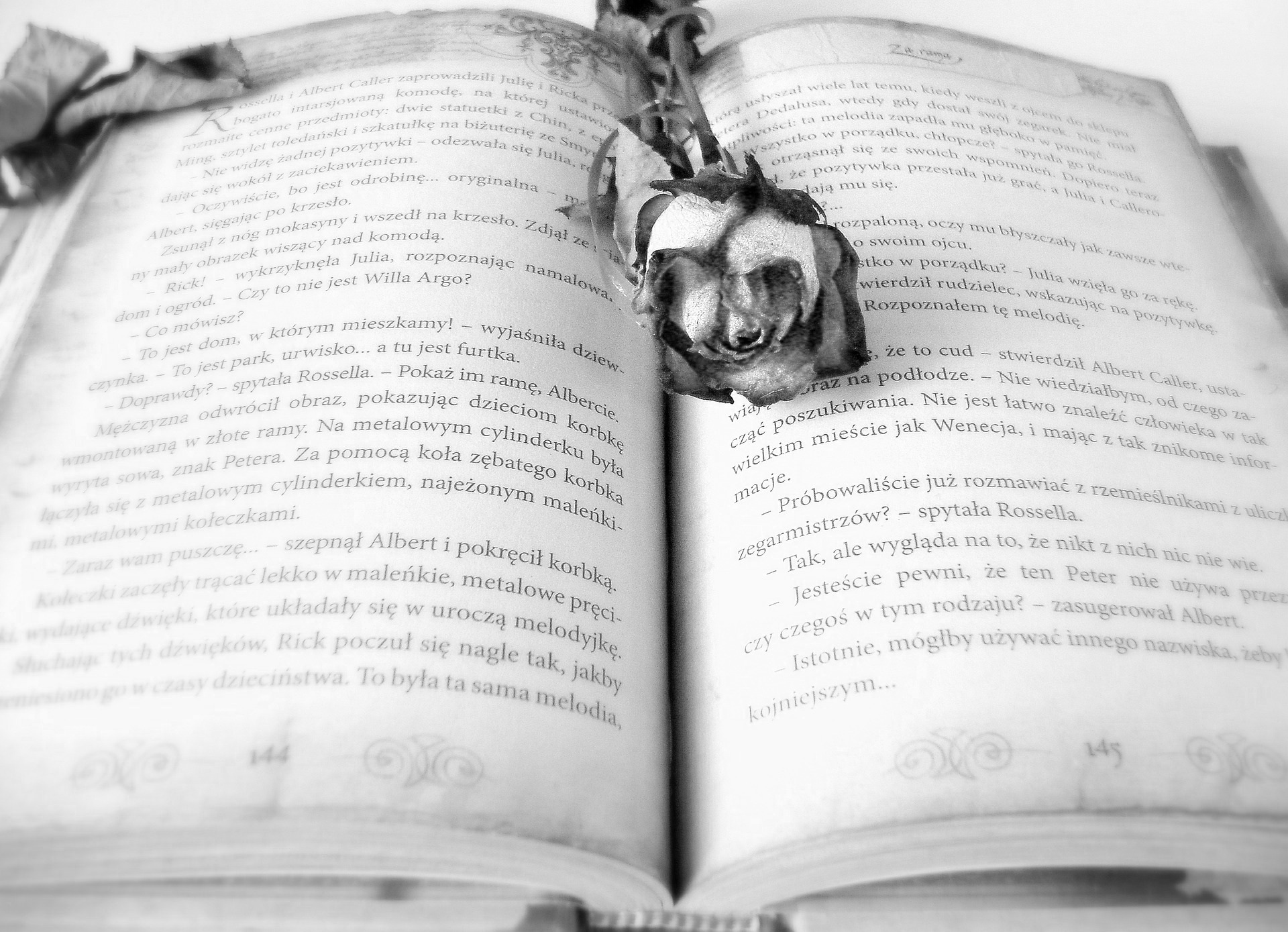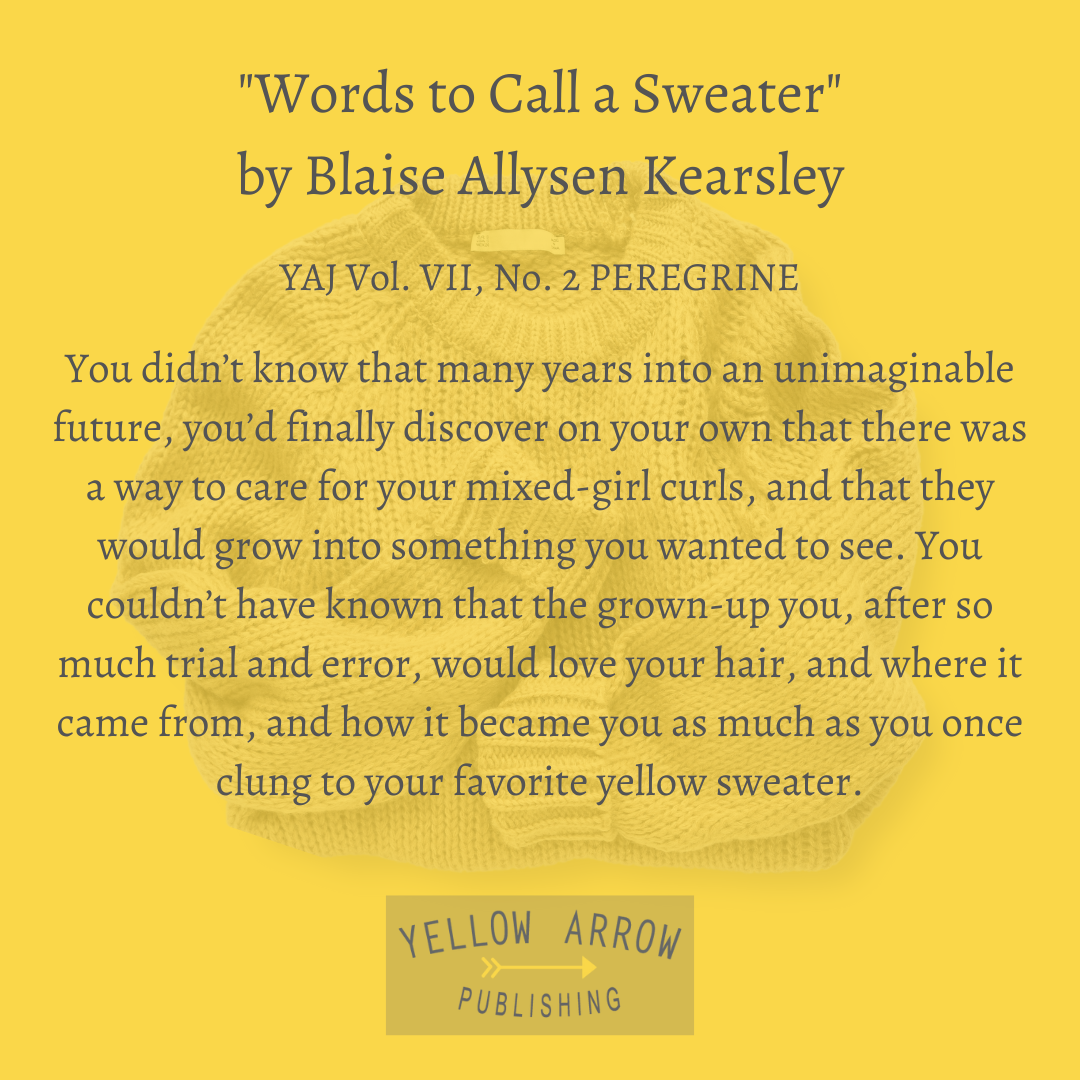
.WRITERS.ON.WRITING..Writers.on.Writing.
Get to know our authors, the foundation and heart of Yellow Arrow Journal, and what writing means to them through our monthly series.
W.o.W. #46
Leticia Priebe Rocha
Describe an early experience where you learned that language has power.
When my family immigrated to the United States when I was 9 years old, I learned English by reading fiction. To be transported into entirely different universes during a time of such challenging personal transition was transformational.
What is a book you wish someone would write?
A poetry collection centering on Brazilian folklore.
What word do you find yourself using most often in your writing?
I am currently gravitating toward the word “unspool.”
What does your inner writing voice tell you?
Go deeper.
Leticia Priebe Rocha’s poem “Lost In” was included in Yellow Arrow Journal PEREGRINE (Vol. VII, No. 2). Leticia received her bachelor’s from Tufts University, where she was awarded the 2020 Academy of American Poets University & College Poetry Prize. Born in São Paulo, Brazil, she immigrated to Miami, Florida, at nine and currently resides in the Greater Boston area. Find her on Instagram @letiprieberochapoems, Twitter @LetiPriebeRocha, or Facebook @leticiaprieberocha and online at leticiaprieberocha.com.
Leticia participated in “Fly to Me, Speak to Me: A PEREGRINE Reading” from December 2022. Support Leticia and the rest of the authors by watching the reading on the Yellow Arrow YouTube channel.
.Writers.on.Writing.
Get to know our authors, the foundation and heart of Yellow Arrow Journal, and what writing means to them through our monthly series.
W.o.W. #44
Blaise Allysen Kearsley
What is the first book that made you cry?
I feel like it may have been The Bluest Eye. Not only because of the story’s deep sorrow but because of the ways in which Pecola Breedlove demands to be seen. And the way Toni Morrison made me feel seen, and all the ways in which I felt that this book was for me at that time. I was at a predominantly white school in a predominantly white neighborhood. It was just an all-around profound, personal experience. At the moment, I can’t even remember a book I read before that had such an impact. Except for some of the children’s books I read when I was little. They make me cry as an adult.
What is your writing Kryptonite? Your most interesting writing quirk?
It’s in the details. The remembered images. Like, for my birthday recently, I invited friends to see the premiere of the Bowie film, Moonage Daydream, and dinner and drinks afterward. My friend Erica, also a writer and someone I’ve known since elementary school, said a movie birthday was old school. I hadn’t thought of that when I planned it, I was just looking for something fun to do. But when she said that, I told her maybe I needed to pack party favors in little paper bags with Snoopy sitting on the roof of his dog house emblazoned on them. She said, “As usual, you’ve got the details just right.” I don’t know if that’s the best example, but I do know those little details come pretty naturally to me. Those little details live in my brain like useless trivia might live in someone else’s. Little details are big.
What word do you find yourself using most often in your writing?
In high school, it was “sinister,” which makes me laugh now. But with affection. Now? “Perpetual” comes to mind. I know I used it in this interview.
What does your inner writing voice tell you?
“You’re a writer.” It took me a long time to own that.
Blaise Allysen Kearsley included her creative nonfiction piece “Words to Call a Sweater” in Yellow Arrow Journal PEREGRINE (Vol. VII, No. 2). Blaise is a Brooklyn-based Black-biracial writer and teacher and the creator/producer/host of How I Learned, a long-running storytelling, comedy, and reading series. Find her on Instagram, Twitter, or Facebook and online at blaiseallysenkearsley.com.
.Writers.on.Writing.
Get to know our authors, the foundation and heart of Yellow Arrow Journal, and what writing means to them through our monthly series.
W.o.W. #43
Hana Worku
Describe an early experience where you learned that language has power.
Somewhere in second grade I realized that other students at the school weren’t saying the same Pledge of Allegiance that we said in my classroom. It looked the same from the outside. Students would stand up, face the flag, hold up a hand, and spit out a bunch of words in sing song recitation. However, it was only in our classroom where students said, “I pledge allegiance to the world and every living thing. One world. One planet. With peace, freedom, and justice for all.”
It was only after a lunchtime discussion with second graders from other classrooms that I understood that my teacher, Ms. Peters, wasn’t following the rules. She wasn’t doing what everyone else was doing. With a few small changes, she had changed the entire meaning. Knowing this made me really think about the words we were reciting and what they actually meant.
What is a good writing habit you have picked up?
The idea of the bone pile or the compost—a place you can just jot ideas or throw stuff that you aren’t sure what to do with or you don’t want to delete but you need to remove. Later you go through the bones/compost and find new growth. It works well for someone like me, I often get distracted, while in the middle of writing, by shiny new ideas or old, nascent memories. This practice gives me a place to put that stuff.
What does your inner writing voice tell you?
You have to write to know what you want to say and why.
Hana Worku is a writer, software developer, and organizer interested in how things are put together. Yellow Arrow Journal PEREGRINE (Vol. VII, No. 2) includes her poem “Still Loading.” You can find Hana on Instagram and Twitter @hanawulu.





